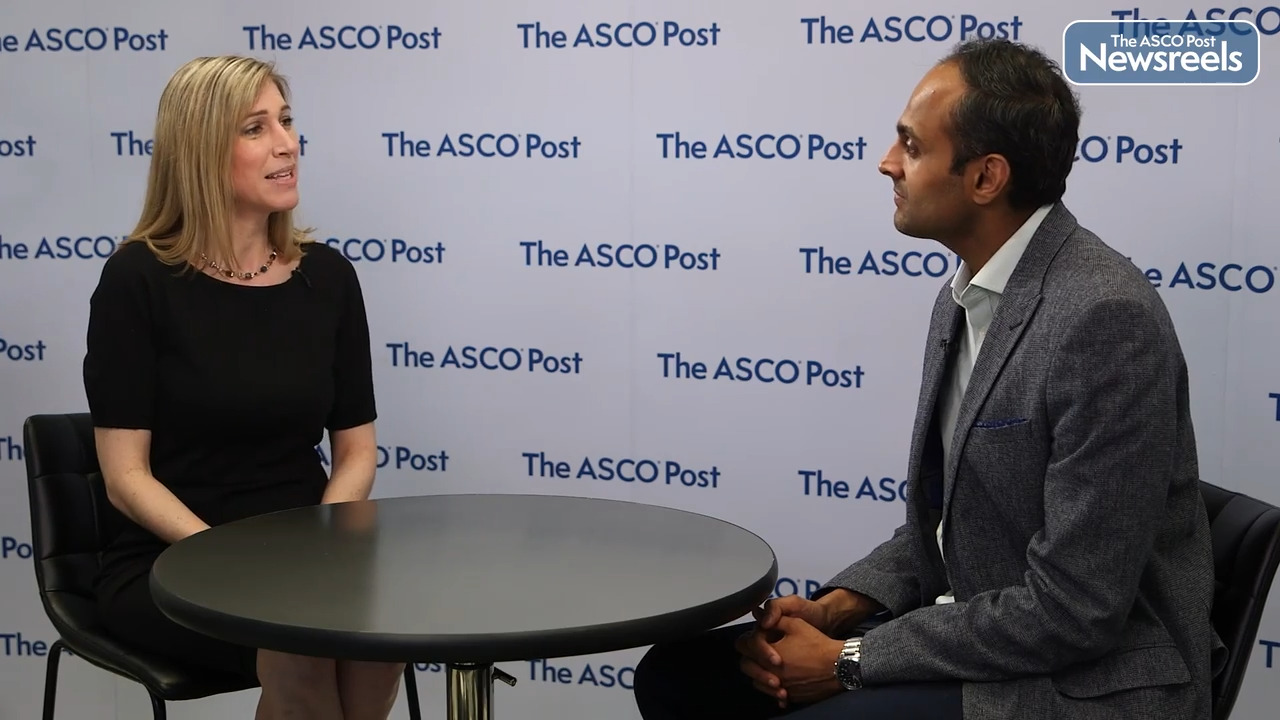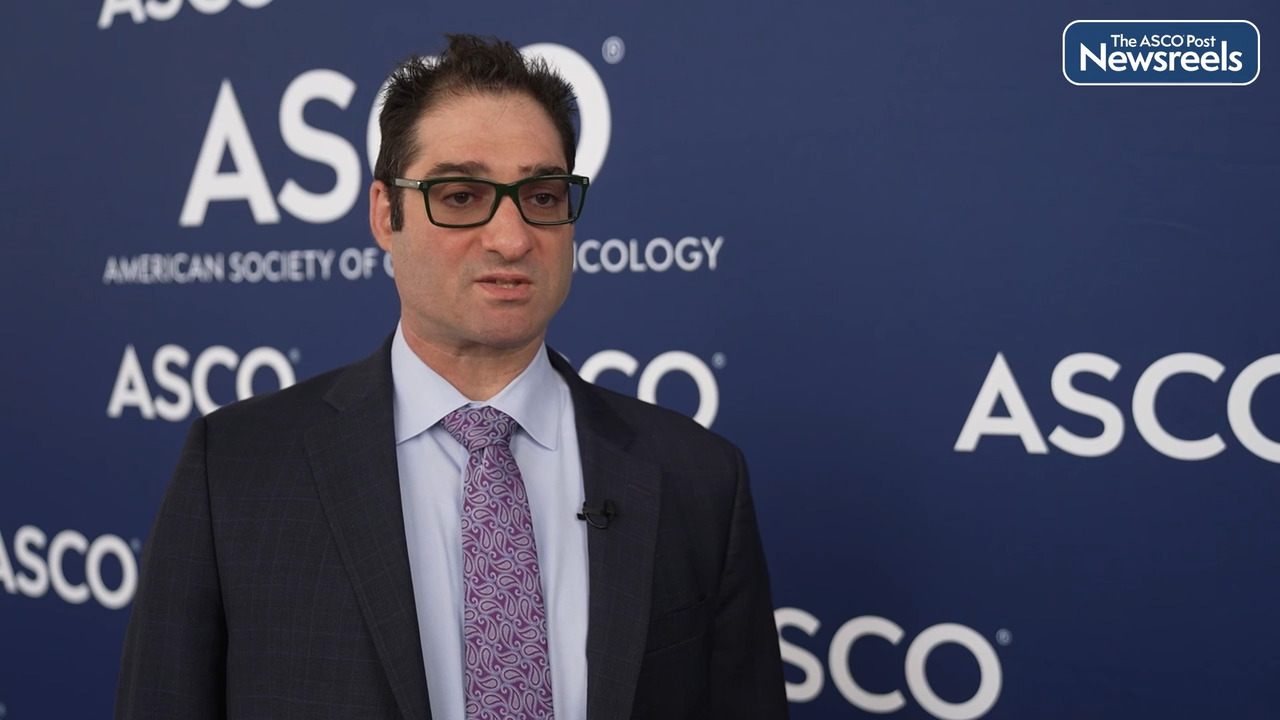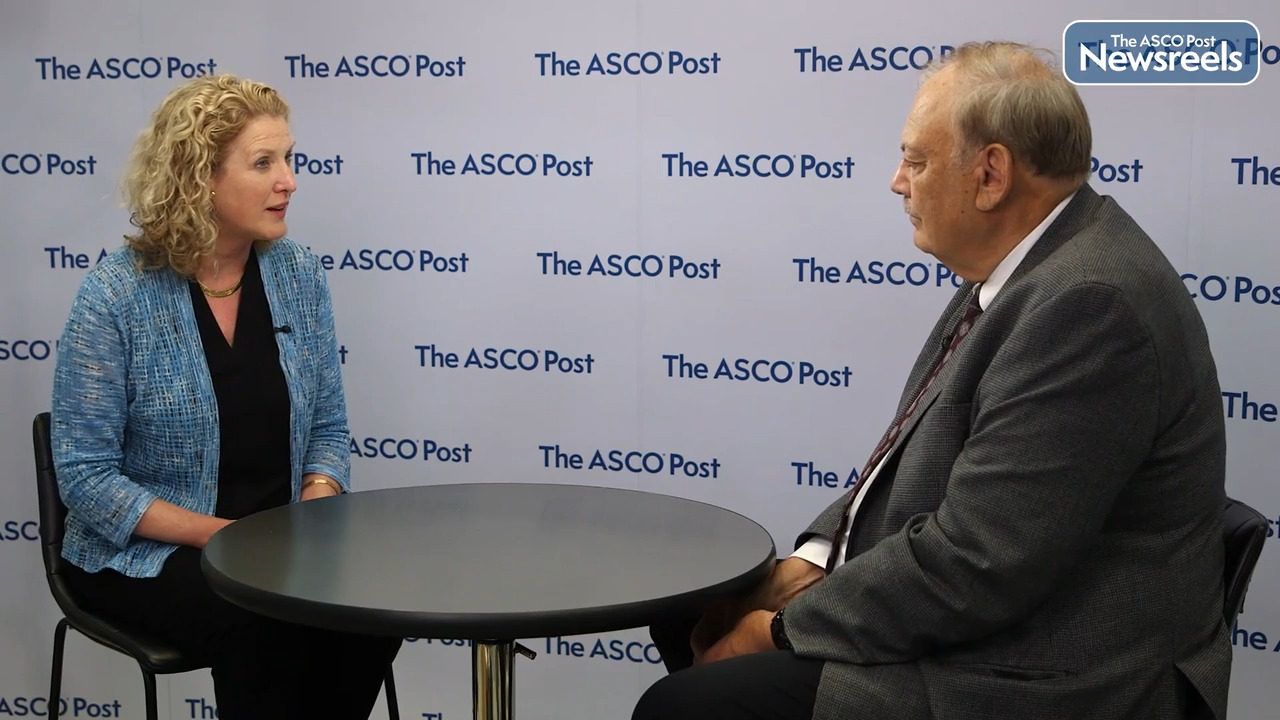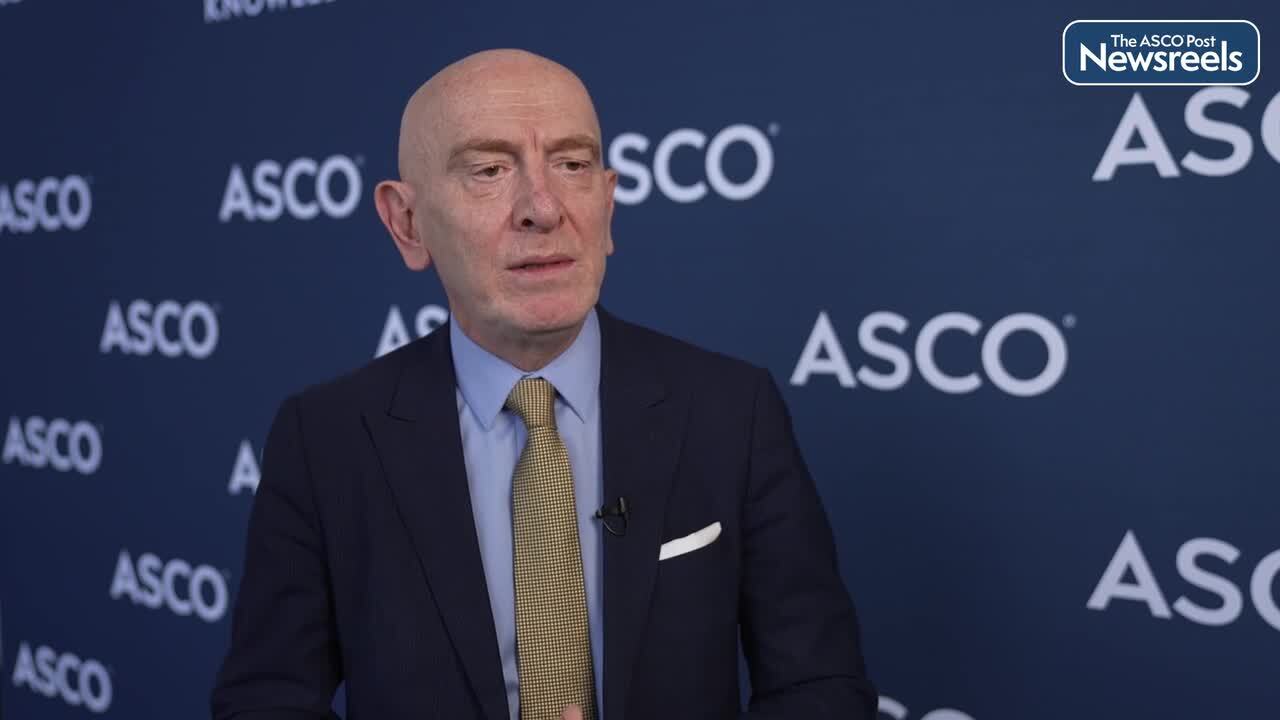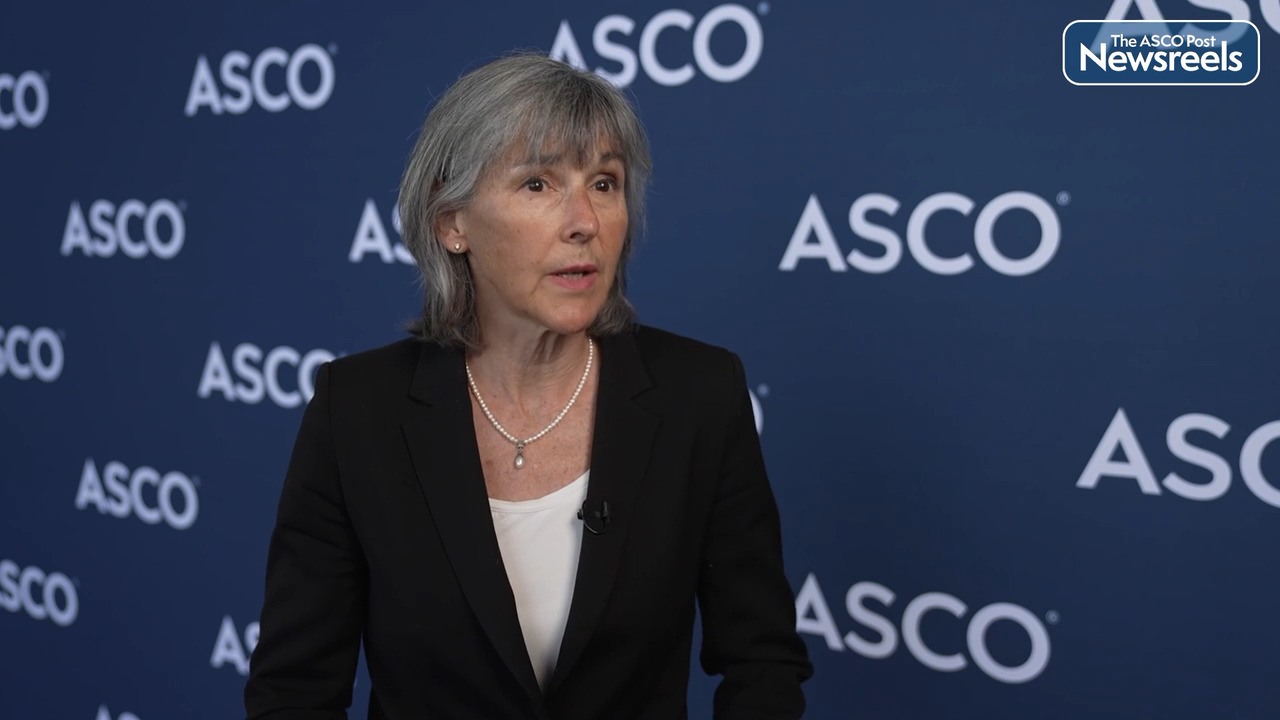Penelope Bradbury, MBChB, on Pleural Mesothelioma: New Results From the IND227 Trial of Cisplatin and Pemetrexed With or Without Pembrolizumab
2023 ASCO Annual Meeting
Penelope Bradbury, MBChB, of Canada’s Princess Margaret Cancer Centre, discusses phase III findings showing that, in patients with treatment-naive unresectable pleural mesothelioma, cisplatin and pemetrexed with pembrolizumab improved median overall survival with acceptable tolerability (Abstract LBA8505).
The ASCO Post Staff
Alicia K. Morgans, MD, MPH, and Praful Ravi, MRCP, MBBChir, both of Dana-Farber Cancer Institute, discuss an individual patient-data analysis of randomized trials from the ICECAP collaborative. A PSA nadir of ≥ 0.1 ng/mL within 6 months after radiotherapy completion was prognostic for prostate cancer–specific, metastasis-free, and overall survival in patients receiving radiotherapy plus androgen-deprivation therapy for localized prostate cancer. These findings may help identify patients for therapy de-escalation trials (Abstract 5002).
The ASCO Post Staff
Jonathan W. Riess, MD, of the University of California, Davis Comprehensive Cancer Center, explores the findings of three important clinical trials in lung cancer treatment: whether to incorporate immune checkpoint inhibitors into the treatment of EGFR-mutated lung cancer, the importance of central nervous system activity in EGFR-mutant lung cancer, and new therapies for disease with EGFR exon 20 insertion.
The ASCO Post Staff
Lisa A. Carey, MD, of the University of North Carolina at Chapel Hill, and Dennis J. Slamon, MD, PhD, of the University of California, Los Angeles, discuss phase III study findings on ribociclib plus endocrine therapy as adjuvant treatment in patients with hormone receptor–positive, HER2-negative early breast cancer. When added to standard-of-care endocrine therapy, ribociclib improved invasive disease–free survival with a well-tolerated safety profile (Abstract LBA500).
The ASCO Post Staff
Muhit Özcan, MD, of Turkey’s Ankara University School of Medicine, discusses waveLINE-007, a two-part study now recruiting in more than 20 locations, to determine the safety and recommended phase II dose of the antibody-drug conjugate zilovertamab vedotin in combination with R-CHP (rituximab, cyclophosphamide, doxorubicin, prednisone) in previously untreated patients with diffuse large B-cell lymphoma (DLBCL). Efficacy of this regimen will be investigated in the second half of the study (Abstract TPS7589).
The ASCO Post Staff
Marie Plante, MD, of Canada’s Université Laval and the CHUQ Hotel Dieu de Québec, discusses phase III results from a study that compared radical hysterectomy and pelvic node dissection vs simple hysterectomy and pelvic node dissection in patients with low-risk early-stage cervical cancer. The pelvic recurrence rate at 3 years in the women who underwent simple hysterectomy is not inferior to those who had radical hysterectomy. In addition, fewer surgical complications and better quality of life were observed with simple hysterectomy (LBA5511).
